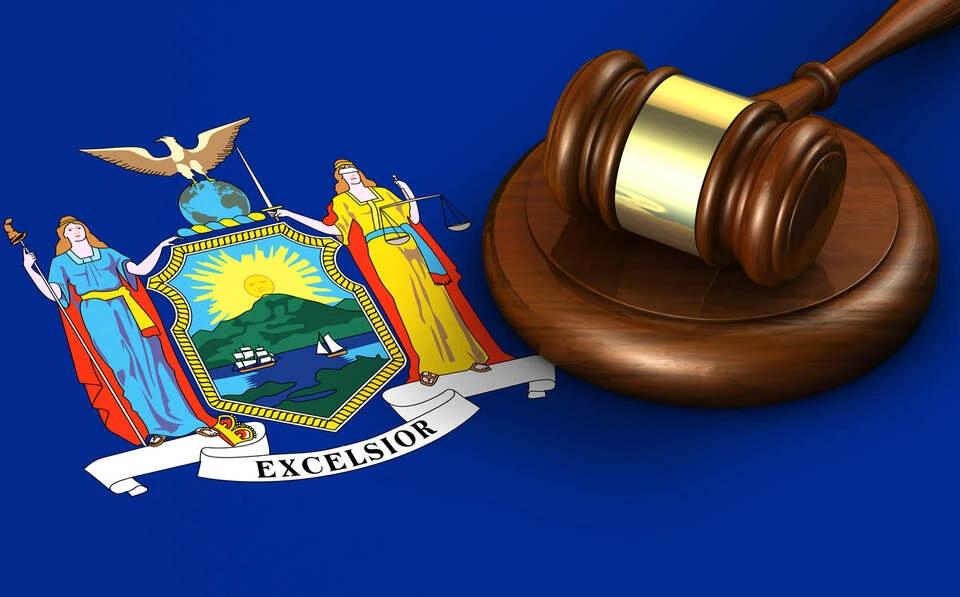
New York lawmakers are moving swiftly to eliminate sweepstakes gambling, advancing a bill that would not only outlaw operators but also penalize the entire network that supports them.
On Tuesday, the New York Senate Racing, Gaming, and Wagering Committee approved SB 5935, a bill introduced by Senator Joseph Addabbo. The legislation, which now moves to the full Senate, aims to shut down unregulated sweepstakes platforms that try to mimic traditional casino games while operating outside state oversight.
“We have these online sweepstakes casinos that look a lot like casino games, but they go unregulated,” Addabbo said during the committee hearing. “Right now, we have a number of states, Connecticut being one of them, that have already made it illegal.”
If passed, New York would become one of the most aggressive states in the country in regulating sweepstakes gaming, targeting not just the platforms themselves, but also the financial institutions, payment processors, and suppliers that enable their operations.
Why New York is Moving to Shut Down Sweepstakes Gaming
Lawmakers in support of the bill argue that sweepstakes casinos operate like traditional gambling platforms but without consumer protections, leaving players exposed to potential risks.
Addabbo referenced Connecticut’s recent action against High 5 Games, a company that had its license suspended and now faces more than 1,000 criminal charges for allegedly misleading consumers into believing they were playing on a legal platform. Connecticut officials ruled that only licensed operators, such as DraftKings and FanDuel, could legally offer online casino gaming in the state.
New York lawmakers want to prevent similar loopholes from being exploited in their state. By acting now, they believe they can eliminate unregulated gaming platforms before they become more widespread. Supporters of the bill believe that without proper oversight, these sites leave consumers vulnerable to unfair gaming practices, unclear withdrawal terms, and a lack of responsible gambling measures.
“We’re looking to ban these kinds of illegal, unregulated gaming sites in New York,” Addabbo stated.
Some lawmakers also raised concerns about the impact of these platforms on younger audiences. Ranking Member Sen. James Tedisco voiced his support for stricter regulations, stating, “Kids already face plenty of temptations; they don’t need another one.” Meanwhile, Sen. Pamela Helming expressed general agreement with the bill’s goals but chose to vote “aye without recommendation,” explaining that questions from constituents had given her pause.
More Than Just Operators
Unlike other states that have focused only on banning sweepstakes operators, SB 5935 takes a more aggressive approach by targeting every entity that enables these platforms to function.
The bill defines sweepstakes gambling as any online or mobile game that resembles casino, lottery, or sports betting-style gaming and uses a dual-currency system. If passed, it would be illegal to offer, promote, or facilitate such services in New York.
Beyond banning operators, the legislation also imposes strict penalties on businesses that provide crucial support to sweepstakes platforms. This includes game developers that supply casino-style content, financial institutions and payment processors that handle transactions, geolocation service providers that help manage access, affiliate marketers and platform providers that promote sweepstakes gaming. Any company found to be assisting in the operation, conduct, or promotion of these platforms could face severe penalties, including fines, license revocation, or denial of future gaming licenses.
By expanding the scope beyond just operators, New York is positioning itself as one of the toughest states in the nation when it comes to regulating sweepstakes gambling.
Industry Backlash & Opposition
As expected, the gaming industry has strongly pushed back against the bill, with the Social and Promotional Games Association (SPGA) leading the charge.
In a statement, the SPGA condemned the legislation as government overreach, arguing that it misrepresents sweepstakes gaming and was rushed through committee without proper debate.
“This legislation recklessly mischaracterizes sweepstakes gaming and threatens to dismantle an entire industry without consideration for its impact,” the SPGA said.
The group also criticized lawmakers for ignoring industry expertise and warned that banning an entire sector, including payment processors and suppliers, could have unintended economic consequences.
Despite the opposition, lawmakers appear committed to moving forward, stating that consumer protection and fair gaming standards must take priority over industry concerns.
New York Joins a Growing National Crackdown
New York is not alone in its effort to rein in sweepstakes gaming. The move comes as part of a broader national trend of states tightening regulations or banning these platforms outright.
Maryland recently passed a bill targeting sweepstakes casinos, sending it to the House for further review. Connecticut regulators cracked down on High 5 Games, filing criminal charges for running an unauthorized online casino. Other states, including Florida, Nevada, New Jersey, and Mississippi, have pending legislation aimed at restricting or banning sweepstakes gaming operators.
With several states moving in the same direction, the momentum for stricter enforcement is growing, raising questions about whether sweepstakes gaming can survive under increasing regulatory pressure.
What Happens Next?
Now that SB 5935 has cleared committee, the full New York Senate will debate and vote on the measure.
If the bill becomes law, New York will have some of the strictest restrictions in the country on sweepstakes gaming, banning not only operators but also penalizing the infrastructure that supports them.
The broad scope of the bill could lead to legal challenges, particularly from game suppliers, financial institutions, and affiliate marketers that provide services to both sweepstakes and legal gambling companies.
The coming weeks will determine whether New York lawmakers move forward with a full ban or if industry pushback leads to revisions.
Either way, sweepstakes gambling in New York now faces its biggest legal threat yet.

Blaise Luis

